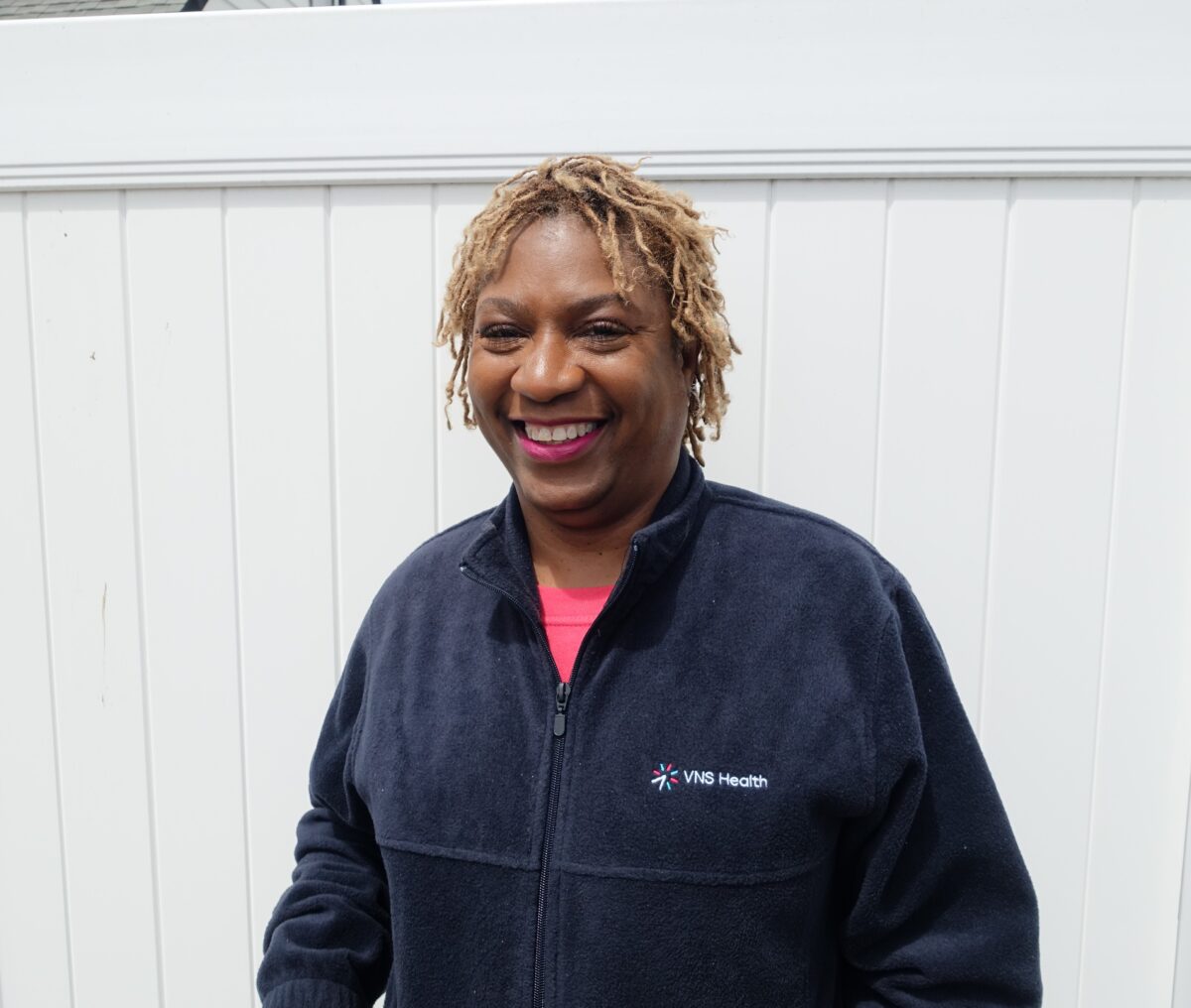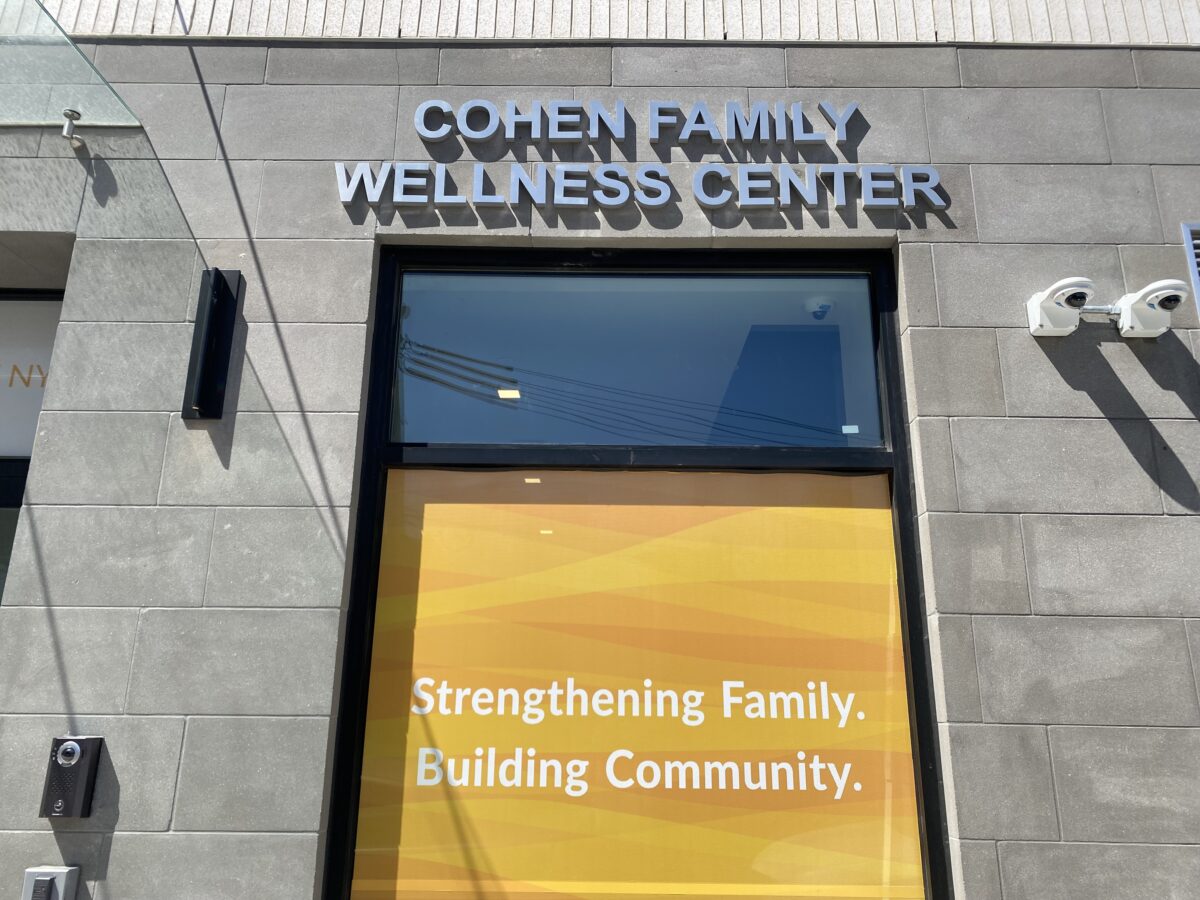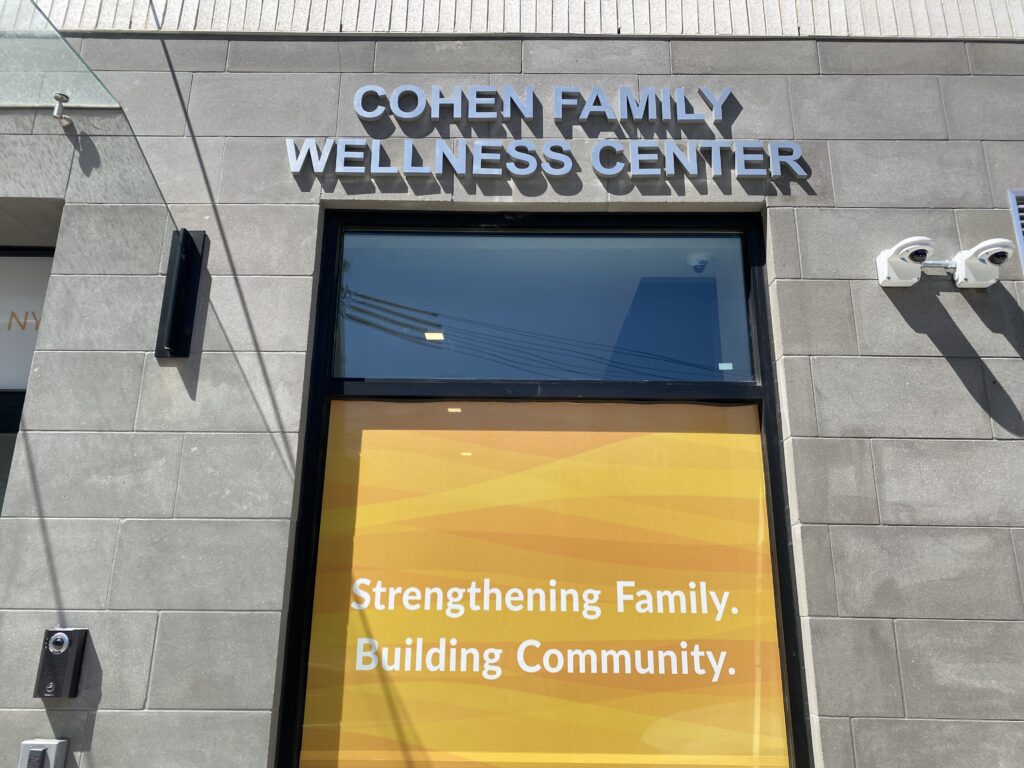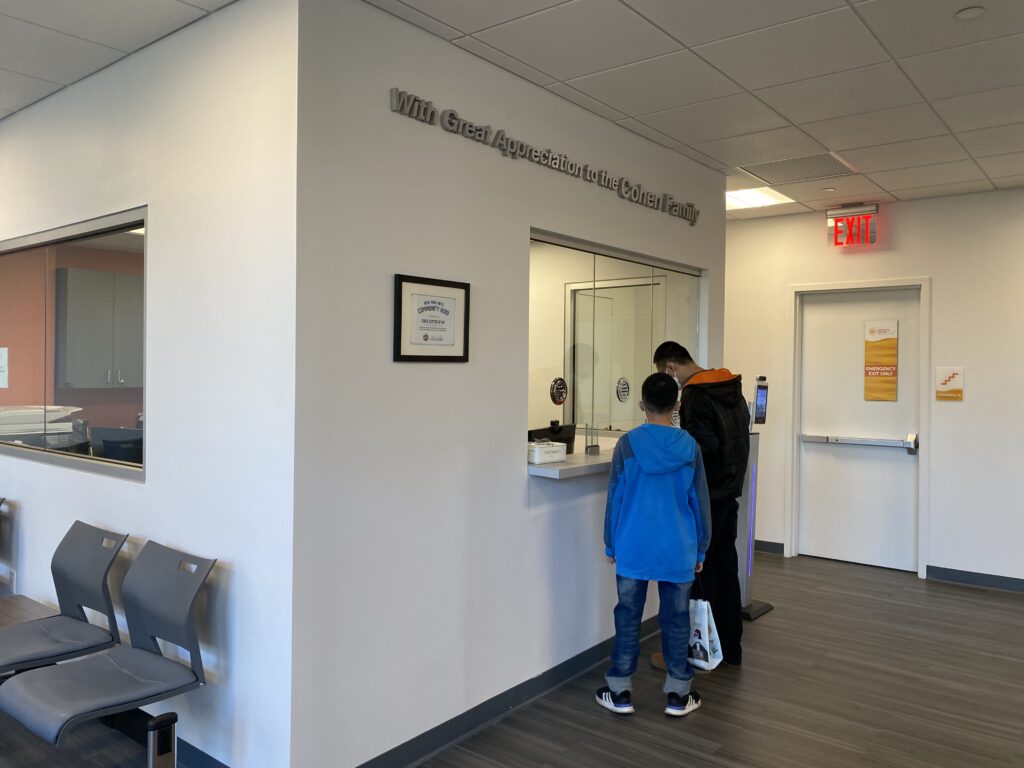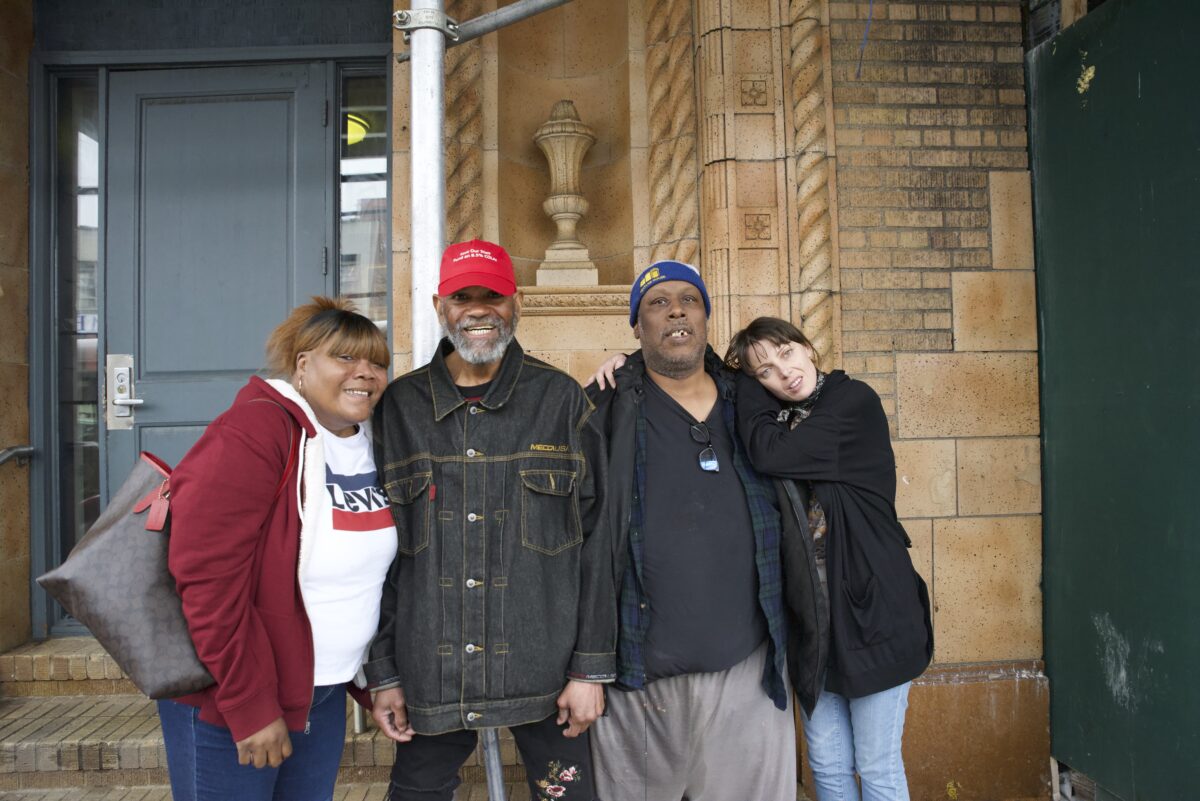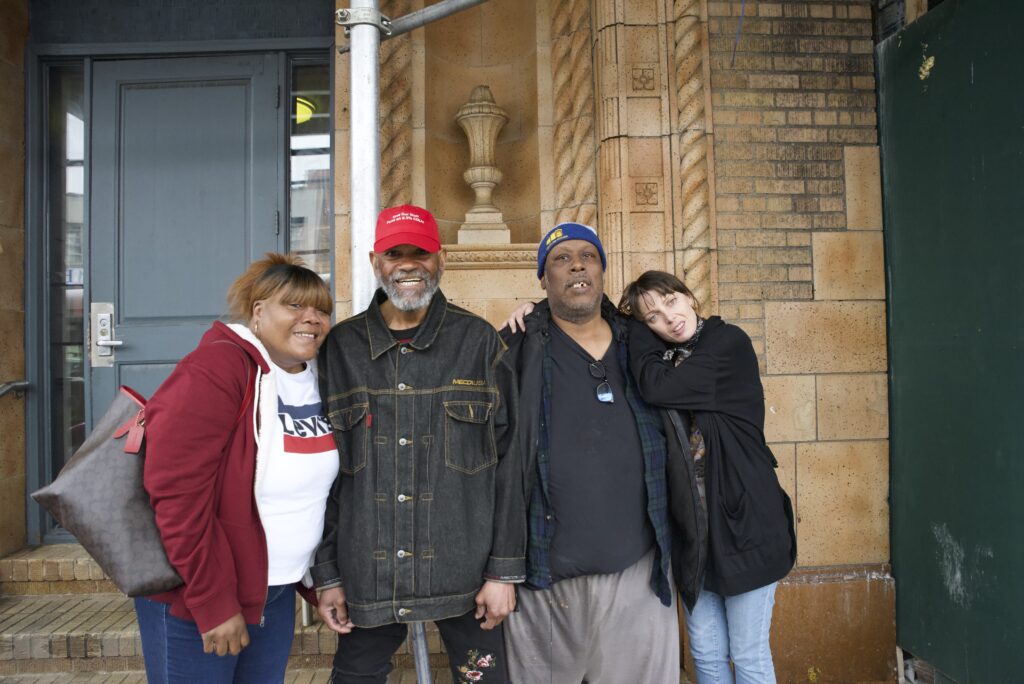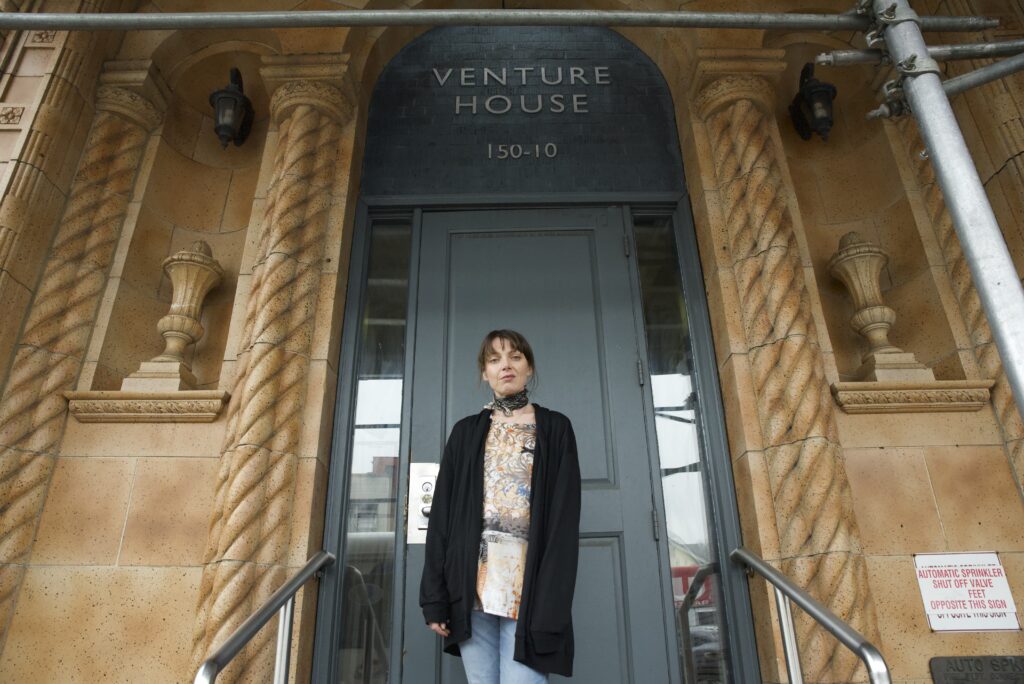Psychiatric Nurses Balance Their Own Mental Health
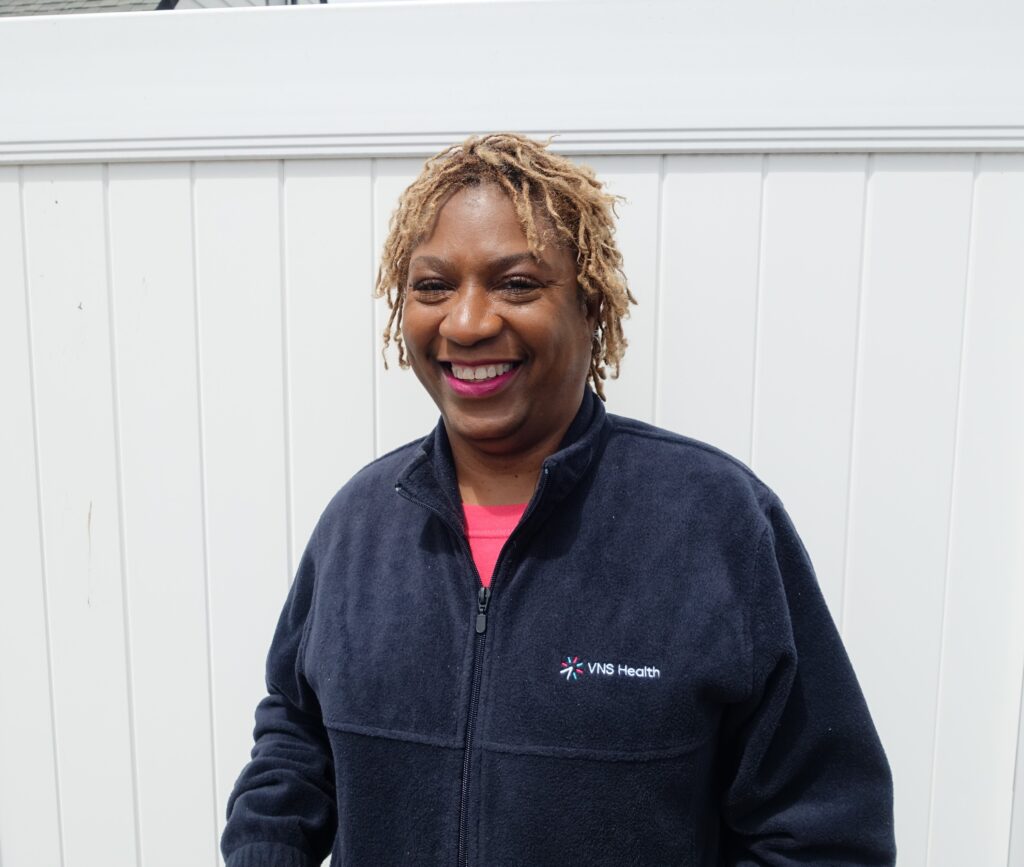
Hendricks travels all across the borough to “bring the hospital” to her patient’s homes. Photo Credit: VNS Health
By Iryna Shkurhan | ishkurhan@queensledger.com
Referred to by many as the backbone of healthcare, nurses are indispensable to the public health system and the wellness of patients.
Those who work in the mental health field face a different set of challenges than general practice nurses who work primarily with patients experiencing physical ailments. For National Nurses Month in May, the Queens Ledger spoke to two nurses working in the mental health field outside of a hospital setting.
Hycolyn Chamberlain is a Registered Nurse (RN) in the PROS Program at Transitional Services for New York (TSINY). The clients she works with have been diagnosed with a serious mental illness (SMI) such as bipolar disorder, schizophrenia or severe depression and are now in the process of recovery and rehabilitation.
In 2021, there were 14.1 million adults in the U.S living with a SMI, approximately 5.5 percent, but only 9.1 million received mental health treatment in the past year, according to the National Institute of Mental Health.
“Sometimes what clients would say to you, as a nurse, they will not say to their psychiatrist, and they will not say to their social worker,” said Chamberlain. “So there’s this trust that they have with wanting to share what’s really going on with them and ask for ideas as to how they can live a better life.”
Clients in the outpatient PROS program are in stable condition and are learning how to carry on with their lives despite their diagnosis. The program assists them with overcoming barriers to education, housing, employment and socialization through daily, or weekly, visits to the Jamaica location.
Recently the mental health field received funding from both city and state officials in New York following an increased awareness of the distress that people from all walks of life are facing, especially after the pandemic.
In February, Governor Kathy Hochul announced a $1 billion investment in improving mental health treatment across the state. The plan included increasing the capacity of both inpatient and outpatient psychiatric facilities, while also expanding insurance coverage and creating additional units of supportive housing.
The following month, Mayor Eric Adams announced a similar mental health initiative to invest $20 million to address the overdose crisis and specifically help people living with a serious mental illness.
“Mental health is my passion. I really do enjoy doing what I do,” said Chamberlain, who works with people who are currently on medication for a SMI.
On a given day she meets with 15-20 clients to administer medication, takes health assessments and runs labs. Once a week she also leads a medication group with a dozen clients where she talks about the dangers of mixing prescriptions with illicit substances and creates a space where patients can discuss the pros and cons of the medications that they are on. She reinforces the importance of taking medication consistently and what available treatment options are available.
“It’s not a cookie cutter situation, you have to treat all the clients as an individual. Mental illness is not the end of the road, there’s life beyond the diagnosis. It’s just a diagnosis,” said Chamberlain. “The clients can live fulfilling lives just like everybody else, with the proper support.”
Chamberlain immigrated from Jamaica 12 years ago and has resided in the St. Albans area since. For a period of time, she could not practice in the field while she waited to be certified. But in 2015 she passed the NCLEX exam, a national licensing exam to become an RN, and began her nursing career in the United States.
After previously working at Bellevue Psychiatric Hospital, she knew that she wanted to work in the mental health field. She prefers her position now at TSINY due to the work-life balance it allows her, especially in a field that she says can be mentally draining at times.
She finds that the traditional 9-5 work day model helps her create a work-life balance and find time for self care activities that benefit her own mental health such as reading, working out and listening to music.
“They really look forward to seeing you every day,” said Chamberlain, acknowledging that her favorite part of the role is feeling appreciated by the clients.
Collette Hendricks, a behavioral health nurse for VNS Health, also acknowledged that her favorite part of her job is receiving appreciation from her clients.
“What I liked the most about it is building a relationship with them, and their families, in their own environment,” said Hendricks, who travels all across Queens to meet clients in their own home. “We kind of bring the hospital to them. They may not be able to get to a hospital, or they may not want to go to a hospital.”
On a typical day she will drive across Queens to see four to six clients in their homes anywhere from Far Rockaway to Astoria to Elmhurst.
VNS Health is a nonprofit home and community-based health care organization that offers services such as home care, hospice care, behavioral health, caregiver support and community outreach.
Hendricks is on the Assertive Community Treatment (ACT) team, which is made up of psychiatrists, social workers, substance abuse specialists, family specialists and both registered nurses and nurse practitioners. To get placed on an ACT team, you have had to be hospitalized in a psychiatric facility at least six times in the past known as “rapid cycling” in the mental health field.
“So I’ve never really felt any negative results against being a nurse, if anything, it’s always been very positive,” said Hendricks who acknowledged that it doesn’t have to be Nurses Month for her to feel appreciated in the field. “My reward is seeing them at the hands like you know, getting a job, going to school or just not having any hospitalizations for a long time.”
“I’ve gone through a lot of loss with family and I think that directed me into that way of healing, ” said Hendricks who is currently completing a masters in mental health and wellness with an emphasis on grieving and loss. “I found ways to cope and process my way through it. And I just feel like a lot of people do not know how to process that.”
In the future she hopes to open up her own mental health and wellness center that will offer support for those managing grief through coping skill classes. Through her own experiences, she has learned to see grief as a process that can ultimately be rewarding on the other side.
“I definitely rely on anything that I learned on my journey and I’m grateful for all the wisdom that it has taught me. It really does assist me in my everyday job and in my everyday life.”



